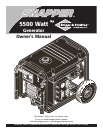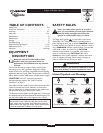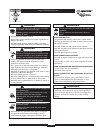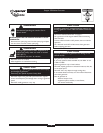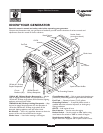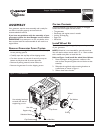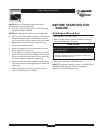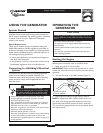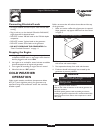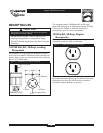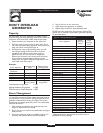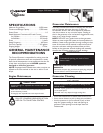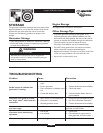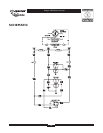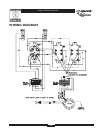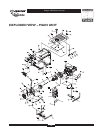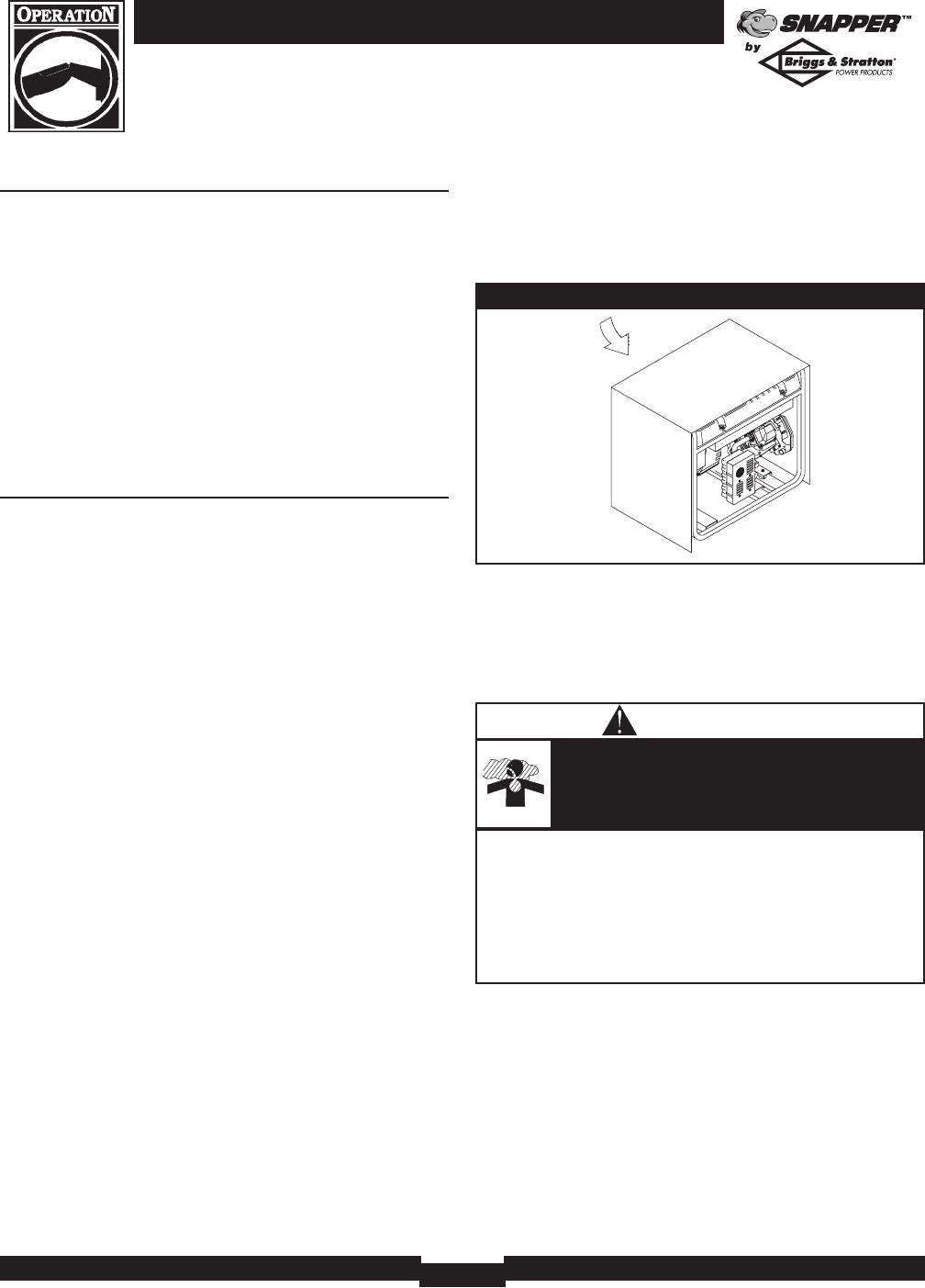
9
Snapper 5500 Watt Generator
Connecting Electrical Loads
• Let engine stabilize and warm up for a few minutes after
starting.
• Plug in and turn on the desired 120 and/or 240 Volt AC,
single phase, 60 Hz electrical loads.
• DO NOT connect 240 Volt loads to the 120 Volt duplex
receptacles.
• DO NOT connect 3–phase loads to the generator.
• DO NOT connect 50 Hz loads to the generator.
• DO NOT OVERLOAD THE GENERATOR. See
“Don’t Overload Generator” on page 11.
Stopping the Engine
1. Unplug all electrical loads from generator panel
receptacles. NEVER start or stop engine with electrical
devices plugged in and turned ON.
2. Let engine run at no-load for several minutes to stabilize
internal temperatures of engine and generator.
3. Turn engine off according to engine owner’s manual.
4. Move fuel valve to “Off” position.
COLD WEATHER
OPERATION
Under certain weather conditions (temperatures below
40°F [4°C] and a high dew point), your generator may
experience icing of the carburetor and/or the crankcase
breather system.
Build a structure that will enclose three sides and the top
of the generator:
1. Make sure entire muffler-side of generator is exposed.
Note generator may appear different from that shown
in Figure 3.
2. Ensure a minimum of two feet clearance between open
side of box and nearest object.
3. Face exposed end away from wind and elements.
4. Enclosure should hold enough heat created by the
generator to prevent problems.
Figure 3 — Permanent Cold Weather Shelter
Wind
• Operate generator ONLY outdoors.
• Keep at least 2 feet of clearance on all sides of generator for
adequate ventilation.
• DO NOT operate generator inside any building or enclosure,
including the generator compartment of a recreational vehicle (RV).
• Remove generator from shelter when temperature is above
40°F [4°C].
Running generator gives off carbon monoxide,
an odorless, colorless, poison gas.
Breathing carbon monoxide will cause nausea,
fainting or death.
DANGER



